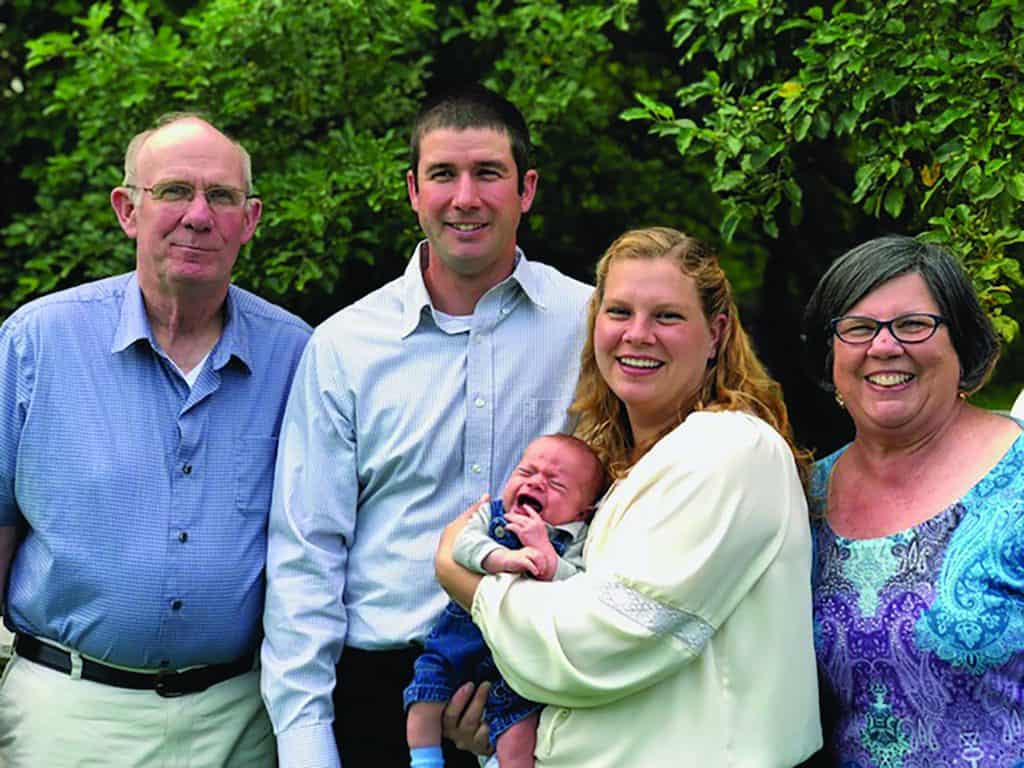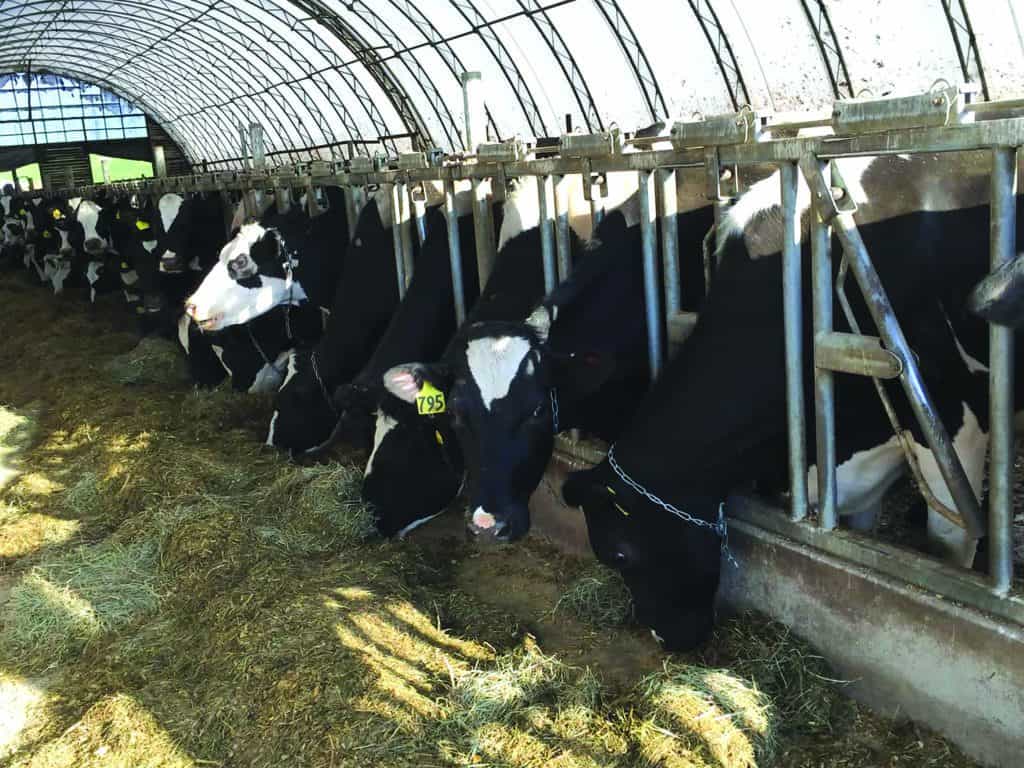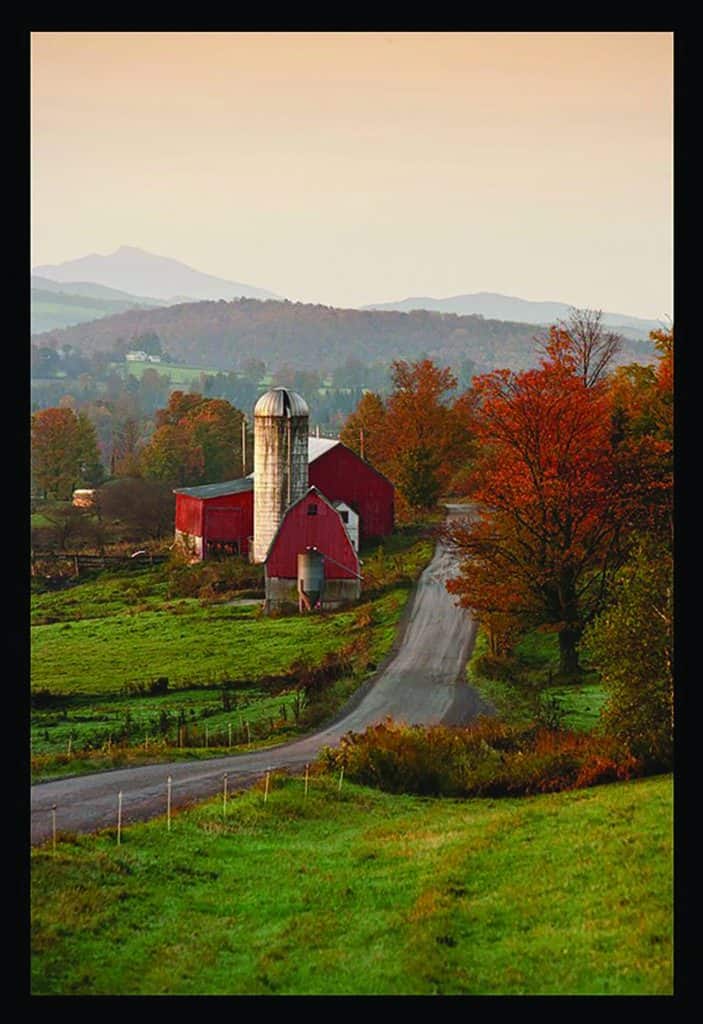
By Virginia Dean
Recent news reports indicate that one of the major industries in Vermont that has been hit the hardest by the pandemic is the dairy farm. According to the state Secretary of Agriculture Anson Tebbetts, 14 small to medium farms (out of a total of 677 as of January 2020) have stopped milking. That’s in addition to nearly 50 dairy farms that were lost in 2019. Some, however, have managed to skirt the current economic impact of the pandemic, milk pricing, and climate change, for instance, by using what Barnard farmer Paul Doton related are knowledge and innovation. Those are the keys to the survival and prosperity of Vermont’s family farms, he related.
“Science is offering the farming community amazing opportunities to improve their herds, their land and their lives,” Doton said. “We’ve made great strides, and, as more research takes place, we’ll continue to implement newer best practices.”
A self-proclaimed optimist, Doton sees a bright future for the next generation of farmers. In addition to helping his son, Bryan, and his wife, Sherry, run the 200-acre farm, Doton is a member of the Agri-Mark/Cabot board of directors, a founding member of the Connecticut River Watershed Farmers Alliance, a past member of the Dairy Management Inc. (DMI) board of directors and the Yankee Farm Credit Board, a justice of the peace for Barnard, and town moderator for Barnard town meetings.

The Dotons milk 70 of their 115 Holsteins, are members of the Cabot Co-op, make and sell pure Vermont maple syrup, grow and sell vegetables, and plow during the winter.
Last week, we sat down virtually with farmer Paul Doton for an extensive interview about his thoughts on the productive operation of his farm, particularly during these dystopian times.

Q&A with Paul Doton
You are a 4th generation Vermont farmer. Can you provide a brief history of your farm going back to its origins? Please include dates and family members.
Paul Doton: The farm has its origin with my maternal grandfather owning from the 1920s until the late 1940s when he sold it to someone outside the family. In late 1949 my parents purchased the farm with assistance from my grandfather.
My parents brought five children into this world and raised them on the farm. In 1978 after graduating from the University of Massachusetts – Amherst and working off the farm for six years I came home to be a partner with my parents. After my father’s passing my wife, Sherry, and I assumed ownership of the farm. We raised our two children here and in 2005 formed Doton Farm LLC with our son Bryan.
My parents milked 14 cows that first winter. Today we milk 70 cows. We make use of as much technology as we can afford. We own 200 acres of land and make use of another 150 acres in order to harvest enough forage to feed the total of 115 cattle that we have.
In addition to producing milk we also make maple syrup and grow sweet corn in order to add diversification to our farming operation.
You’re now in the 21st century in the midst of an unexpected pandemic that has negatively affected many farms around the state. How are you managing to stay afloat?
PD: We have been able to stay afloat partly due to the fact that we do not have a heavy debt load and do have access to a line of credit in case we need it. We have only family labor. Being isolated is not that difficult. It’s just that interacting with family and friends is.
Just try to image what the impact on your life would be if your paycheck (in our case the twice monthly milk check) for June was 50% of what it had been in January.
Governor Scott has proposed $50 million in aid to the dairy industry. $40 million would go to farmers and $10 million to the processors. This money would come from the federal CARES Act. How would this help your farm?
PD: The CARES Act funds may have come to the state of Vermont, but no farms have received any of these funds.
This program must be approved by the Legislature and we are all waiting for them to act. There are two federal programs that our farm is part of with one paying out monthly and the second is still in the application step.
In this time any assistance would be greatly appreciated, but it needs to be put in the hands of farmers soon.
Given the current state and national economy, what can consumers do to support farms in the short- and long-term run?
PD: I will admit that I am an eternal optimist, but the last four years of low milk prices were starting to test that. When prices started to move to higher levels in January through early March, that feeling returned. Then the pandemic struck this country, and everything changed. Now the food service industry is starting to open up and milk price forecasts are beginning to increase after hitting a low point in June.
You once said that you are an “eternal optimist.” How has this philosophy affected your dedication to your farm?
PD: Looking to the future, the next generation, our son, Bryan, is fully integrated into the operation of the farm. The fact that dairy has shown that its products are a solution to the food security movement gives me hope for the future.




